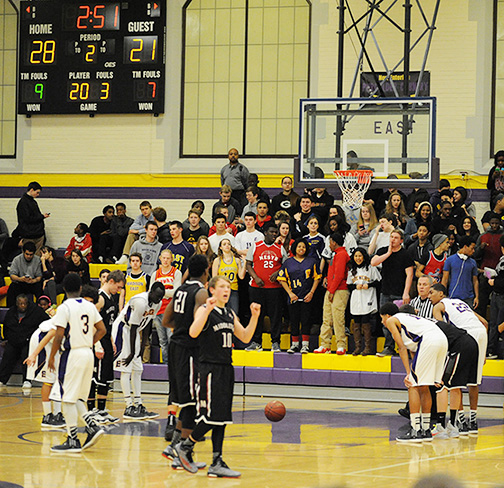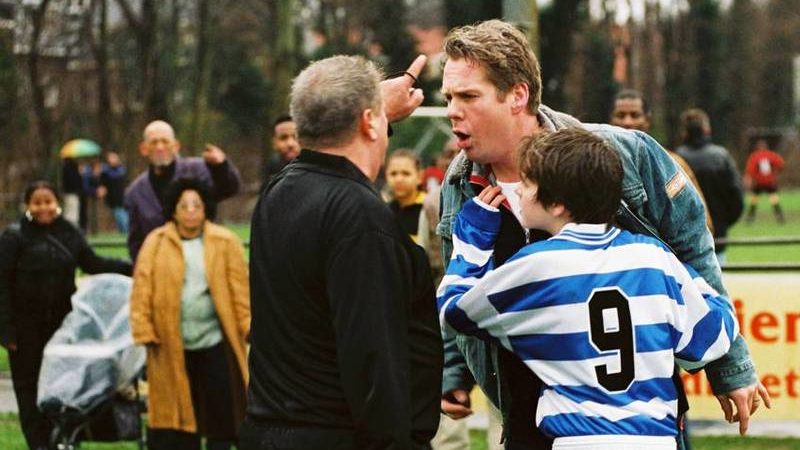Building positive relationships with sports parents

Every coach goes through it. There is a disgruntled father in the stands, or you receive an email laced with complaints from a concerned mother. It only takes one or two parents thinking about your program in a negative light for that sentiment to spread like wildfire. Fractured parent-coach relationships can undermine what you’re trying to accomplish with your team and almost always lead to conflicts.
Positive parent-coach relationships not only create a more harmonious environment for your program, they also greatly aid in the overall development of individual players and your team. This is why fostering effective parent-coach bonds are essential to building any program or running any team, regardless of the sport or level of play.Here are some keys to developing effective parent-coach relationships.
1. A parent-coach communication plan.
Have a parent-coach communication plan in place. It’s important to have a plan in place to prepare for the most common parent-coach issues that you face throughout the course of a season. Some of the possible conflicts you might face include scheduling, playing time, injuries, your level of success, style of play, player roles, differing opinions on coaching strategy and fan behavior in the stands. You need to decide with your staff the best way to handle each challenge.
You also must develop expectations and guidelines that drive your parent-coach communication plan. Establishing boundaries between parents and coaches is an essential component.
2. Communicate plan to parents, players and coaches.
After you develop a plan, make sure you communicate it to everyone in your program. Hold a parent meeting to present your guidelines and expectations, and discuss any questions they might have. Set clear expectations at the beginning of the season and constantly reinforce your plan as it progresses.
3. Build a solid level of trust.
It’s to your benefit as a coach to make a concerted effort to build a high level of trust between yourself and parents in your program. Your players’ parents need to know that you always have the best interests of their children in mind.
There are many ways in which you can help foster this trust. Be fair with everyone on your team, though being fair doesn’t always mean being equal. Communicate and reinforce your intentions as a coach, show parents and athletes on a consistent basis that you genuinely care about their well being and development, and become invested in their success inside and outside the competitive arena.
» ALSO SEE: Adjusting your philosophy to combat sports parents
Although you’ll never get parents to agree completely with every single decision you make, established trust makes it clear to them you always will do your best to help their children.
 4. Give parents ownership in your program.
4. Give parents ownership in your program.
Just as players need to feel like they have a stake in the success of your team, parents need to feel the same way. So give them ownership.
If your players’ parents feel like they’re invested in the overall success of your team and program, they become more committed to helping out and ensuring that things go smoothly. They need to feel like they are a part of the overall operation of your program. Obviously, if parents feel like they have too much ownership, it can backfire. They might attempt to exert too much influence in the day-to-day operations of your program.
The level of involvement that you want them to have needs to be made clear and constantly reinforced. The best way to get them involved while maintaining proper boundaries is to give them several activities to organize or run. Here are some examples:
- Organize team dinners
- Help run the concession stand at games
- Assist with fundraising activities
5. Be clear/concise when engaging in parent-coach communication.
Make sure that you’re clear and concise when communicating with parents. When possible, think through what you’re going to say and what you want to accomplish before speaking with them. You don’t want them to misconstrue your message and what your true intentions are. When you are clear and concise, there is little room for misinterpretation.
Also, keep a log of all of the times you communicate with each parent in your program and take notes of what was discussed. This way you have a reference point to return to at a later date if needed.
6. Create an environment where parents feel you are approachable.
Make sure parents know that while there is certain protocol in place when contacting a coach, there is an open-door policy in regards to parent-coach communications in your program. Parents need to feel that you’re approachable and willing to address their legitimate concerns.
 7. Take a solution-based approach when confronted with issues.
7. Take a solution-based approach when confronted with issues.
Instead of dwelling on the problem, turn your attention to finding a solution. You could spend hours discussing the details of every conflict you’re confronted with, but you wouldn’t accomplish very much taking that approach. As soon as you move toward finding a solution in the present, both parties feel a sense of relief.
8. The perspective of parents might differ from the coach’s.
It’s important to understand that your athletes’ parents always have their child’s best interests in mind. Coaches, on the other hand, consider individuals and the team. Although these two perspectives might match up at times, they often come in conflict with each other.
When conflicts such as these arise, it doesn’t necessarily mean the parents are wrong. It’s important to communicate this difference in perspective and reach a common understanding that compromises might have to be made for the sake of the team’s success.
Even with an effective parent-coach communication plan in place, not everything will go smoothly for you. No matter how well you handle each situation, there always will be personality conflicts and misunderstandings. When they arise, you must stay calm and professional. Don’t take it personally. You need to remember that the majority of parents don’t have malicious intent; they are simply trying to protect their child to the best of their ability.
How you handle these situations determines the overall success of your program and the development of each individual player on your team.





